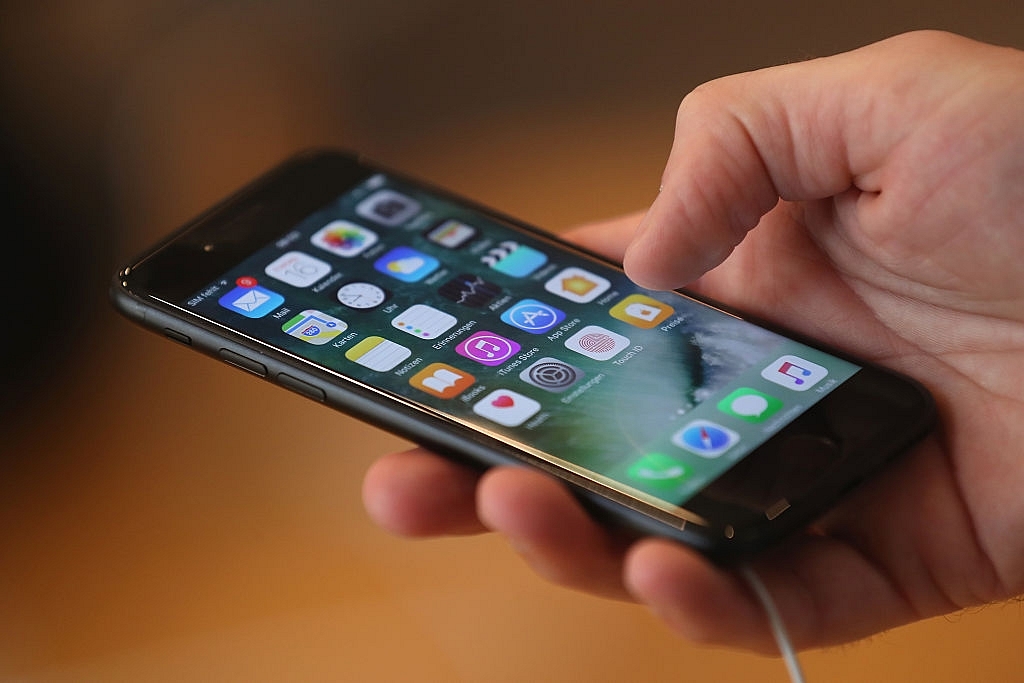News Brief
Explained: The 10 Second ‘Scandal’ Which Is Rocking Indian Telecom Industry
- A sensational allegation has been levelled against Reliance Jio by Airtel, here’s what the story is

Apple iPhone 7 (Sean Gallup/Getty Images)
The Indian telecom industry has been an especially volatile market with Reliance Jio’s entry in September 2016. Data prices have fallen by 93 per cent and India now has the cheapest mobile data rates in the world.
The entrenched giants like Airtel and Vodafone too were forced to slash their rates to stay relevant in the game.
The competition though soon turned ugly when Jio alleged that the incumbent telecom giants like Airtel, Vodafone and Idea were denying sufficient points of inter-connection to it resulting in 75 per cent call drops on its network.
Now the telecom giants are huddled in another dispute with Jio now being on the receiving end of a sensational allegation that it is scamming the competition by reducing the total ring time of its calls.
The genesis of the dispute lies in “interconnect usage charge” and Jio has been accused of trying to increase its revenue by exploiting it.
What Is Interconnect Usage Charge?
Let’s assume you are a customer of Airtel and you dial your friend who uses Vodafone. So during this process your network carrier, in this case Airtel puts you through to Vodafone thus has to pay 6 paise per minute to the latter.
In short every telecom operator in India facilitating an outgoing call has to pay a 6 paise Interconnect Usage Charge (IUC) to the telecom operator on the receiving end. During the aforementioned call Airtel paid Vodafone 6 paise per minute so that you could talk to your friend.
What Is Jio Being Accused Of?
Jio has been accused by Airtel of trying to avoid paying these interconnect charges by coming up with a shrewd technique. Airtel alleges that Jio has reduced the total outgoing call ring time from 30 seconds to 20 seconds.
So if you are calling your friend from your Jio number, their phone will ring for just 20 seconds as opposed to the earlier 45 second duration, thus increasing the probability of him failing to pick up your call. Your friend then may try to call you back and then you two can have a conversation.
Now considering your friend is an Airtel customer, Jio would have paid Airtel 6 paise per minute for the duration of the call. But, as your friend failed to pick up the call and dialled back via his Airtel number, Airtel now has to pay Jio 6 paise per minute as IUC.
This as alleged, would help Jio increase its IUC revenue and at the same time reduce the incoming and outgoing call asymmetry. Currently Jio’s 36 per cent of its calls are incoming and it needs to increase this figure to 50 per cent.
Jio’s Defence
Jio has denied these allegations. It claims that while its competitors in India have an average ringing time of 30 seconds, their global counterparts including Vodafone UK have an average ringing time of 15-20 second.
It claims that as it provides free voice calls, various customers (who pay Rs 1.5 per second in outgoing calls) voluntarily give missed calls to their associates to save money.
Why Not Just Get Rid Of Interconnect Usage Charge, Problem Solved Right?
Yes we are getting rid of it. As thing’s stand there will be no IUC from 1 January 2020 and it will be replaced by something called Bill and Keep Mechanism (BAK). This new mechanism levies no charge and instead keeps a record of outgoing and incoming calls.
The theory is that as to and fro call volumes are almost similar the charges would cancel out. The problem is it’s not quite true.
While on paper it might look unnecessary but IUC is a two way process. While on one hand a telecom operator has to pay the charge it also earns back. The legacy telecom operators have claimed that they are set to lose around Rs 1,000 crore per year.
Now in order for BAK to work, there needs to be symmetry in outgoing and incoming calls. In case of Jio, it has been reported that only 36 per cent of its calls are incoming - the ideal figure needs to be 50 per cent.
This competitors allege that by reducing the ring time Jio is also trying to correct its incoming call figure.
TRAI’s Response
In light of these allegations TRAI has issued a consultation paper to determine the ideal ringing time. It has also hinted at deferring the scrapping date of IUC if it notes that Indian telecoms have not been able to achieve call symmetry.
Whatever may be the case, Indian telecom rivals now have a new axe to grind against each other.
Introducing ElectionsHQ + 50 Ground Reports Project
The 2024 elections might seem easy to guess, but there are some important questions that shouldn't be missed.
Do freebies still sway voters? Do people prioritise infrastructure when voting? How will Punjab vote?
The answers to these questions provide great insights into where we, as a country, are headed in the years to come.
Swarajya is starting a project with an aim to do 50 solid ground stories and a smart commentary service on WhatsApp, a one-of-a-kind. We'd love your support during this election season.
Click below to contribute.
Latest